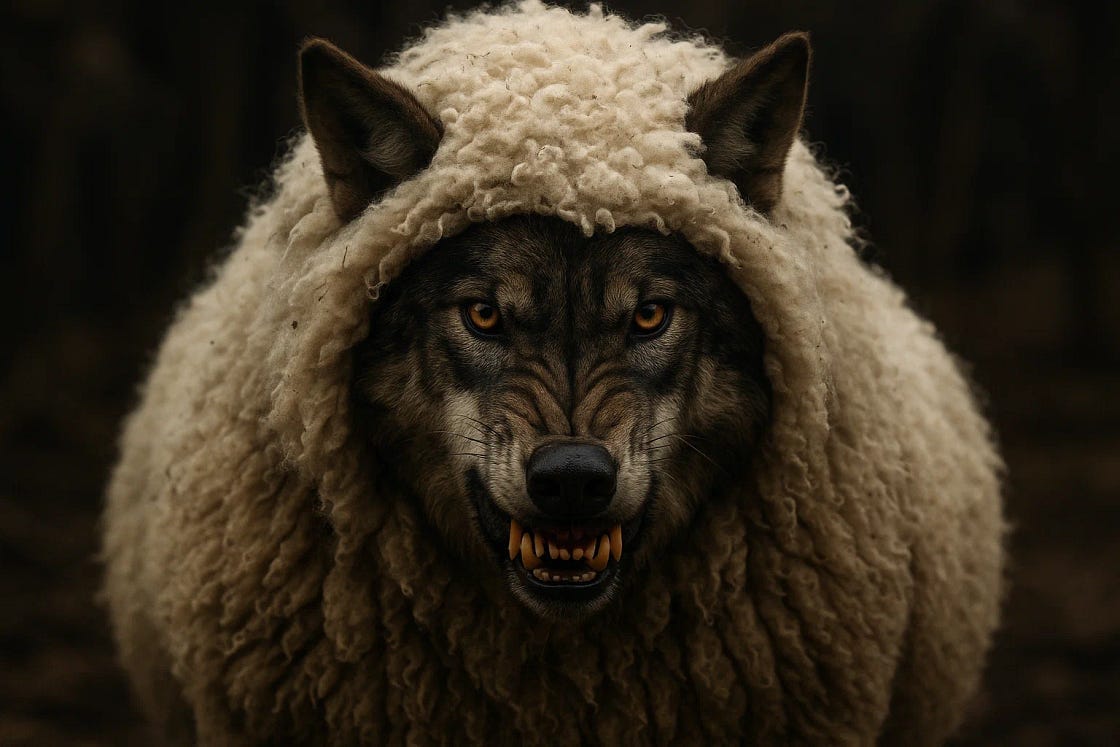The 7 Signs You’re Dealing With a Covert Narcissist (And Why It’s Destroying Your Mental Health)
They don’t look like the narcissists in movies. They’re your colleague, your partner, maybe even your parent. Here’s how to spot them before they break you.
You know that feeling when someone makes you question your own reality? When you walk away from conversations feeling drained, confused, and somehow wrong? When you find yourself constantly defending your thoughts, feelings, and experiences to someone who claims to care about you?
Welcome to the world of covert narcissism. And if you recognize that feeling, you’re not alone and you’re not crazy.
The Narcissist Next Door Doesn’t Wear a Crown
Forget everything you think you know about narcissists. They’re not all grandiose, attention-seeking show-offs. The most dangerous ones hide in plain sight, masquerading as the victim, the helper, the misunderstood genius, or the sensitive soul who just needs your understanding.
Covert narcissists are emotional vampires with advanced camouflage. They’ve perfected the art of making you feel like you’re the problem while they systematically erode your sense of self.
“The covert narcissist is the wolf in sheep’s clothing. They appear vulnerable and wounded, but underneath lies the same core need for control and superiority.”
Here’s what researchers have discovered about these hidden manipulators and why recognizing them could save your sanity.
Sign #1: They’re Professional Victims
Everything bad that happens to them is someone else’s fault. They collect grievances like trophies, always ready with a sob story about how unfairly they’ve been treated. But notice something: they never take responsibility for their role in conflicts.
They’ll tell you about their terrible ex, their ungrateful children, their incompetent boss, their unfair circumstances. What they won’t tell you is how they contributed to these situations. Because in their world, they’re always the innocent party.
This victim mentality serves a purpose: it deflects accountability while garnering sympathy and attention. It’s manipulation disguised as vulnerability.
Sign #2: They Gaslight Without Breaking a Sweat
“That never happened.” “You’re being too sensitive.” “You’re remembering it wrong.” “I never said that.”
Gaslighting is the covert narcissist’s signature move. They’ll rewrite history with such confidence that you start doubting your own memory. They’re not just lying. They’re making you question your grip on reality.
“Gaslighting isn’t just denial. It’s a systematic assault on your perception of truth, designed to make you dependent on their version of reality.”
The scariest part? They often believe their own lies. Their need to preserve their self-image is so strong that they genuinely rewrite events in their minds. This makes them incredibly convincing because they’re not consciously lying. They’ve convinced themselves their version is true.
Sign #3: Your Emotions Are Always “Wrong”
Express frustration? You’re “overreacting.” Feel hurt? You’re “too sensitive.” Get angry? You’re “being dramatic.” Have needs? You’re “being selfish.”
Covert narcissists are emotional police officers, constantly monitoring and invalidating your feelings. They position themselves as the rational, reasonable one while painting you as emotionally unstable.
This serves two purposes: it keeps you off-balance and questioning yourself, while maintaining their position as the “stable” one in the relationship. Your emotional responses become evidence of your inadequacy, not a natural reaction to their behavior.
Sign #4: They’re Experts at Passive Aggression
Direct confrontation is too risky for covert narcissists because it might expose them. Instead, they master the art of passive aggression: the silent treatment, backhanded compliments, “forgetting” important things, showing up late, making subtle digs disguised as concern.
“I’m just worried about you. You seem really stressed lately” (translation: you look terrible). “I was just trying to help” (after overstepping boundaries). “I didn’t think it was that important to you” (after ignoring something you explicitly said mattered).
They’ll hurt you with a smile, then act shocked when you react negatively to their “help” or “concern.”
Sign #5: Everything Is a Competition (Even When It’s Not)
Mention your promotion? They’ll bring up their bigger achievement from years ago. Share your struggle? They’ll one-up you with their worse experience. Celebrate your success? They’ll find a way to diminish it or make it about them.
“To a covert narcissist, your joy is a threat to their sense of superiority. They can’t celebrate your wins because it highlights their perceived inadequacy.”
This isn’t just poor social skills. It’s a deep-seated inability to tolerate anyone else being the center of attention or achieving something they haven’t. Your success feels like their failure, so they must level the playing field.
Sign #6: They Give to Control, Not to Help
Covert narcissists often appear generous and helpful, but their giving always comes with invisible strings attached. They’ll do favors you didn’t ask for, then use them as leverage later. They’ll offer help, then make you feel guilty for needing it.
Their generosity is an investment in future control. Every favor becomes a debt you owe, every act of kindness becomes proof of their superior character. When you don’t respond with the gratitude and deference they expect, you’re painted as ungrateful.
Watch for the pattern: their help always positions them as the hero and you as the beneficiary who should be perpetually grateful.
Sign #7: You Feel Crazy Around Them
This is the big one. The cumulative effect of all their behaviors is that you start questioning your own judgment, memory, and sanity. You find yourself walking on eggshells, constantly second-guessing your reactions, and feeling like you can never do anything right.
You might notice:
Apologizing for things that aren’t your fault
Explaining and defending your basic needs and feelings
Feeling exhausted after spending time with them
Doubting your own perceptions and memories
Making excuses for their behavior to others
Feeling like you’re never good enough
“The goal of covert narcissistic abuse isn’t to obviously harm you. It’s to slowly erode your confidence in your own reality until you become dependent on theirs.”
The Science Behind the Madness
Research shows that covert narcissists score high on measures of narcissistic personality traits but low on grandiosity. They have the same core features — lack of empathy, sense of entitlement, need for admiration — but express them through vulnerability and victimhood rather than obvious arrogance.
Studies indicate that relationships with covert narcissists often cause more psychological damage than those with overt narcissists because the abuse is harder to identify and therefore harder to address. The victim often struggles with self-doubt and confusion long after the relationship ends.
Breaking Free From the Web
Recognition is the first step toward freedom. Once you understand what you’re dealing with, you can start setting boundaries and protecting your mental health.
Stop trying to make them understand your perspective because they literally cannot see beyond their own needs. Stop explaining yourself because their confusion is often performative. Stop accepting responsibility for their emotions because that’s not your job.
Document incidents when you start doubting your memory. Trust your gut feelings. Seek support from people who validate your experiences rather than minimizing them.
The Hard Truth About Recovery
Here’s what no one tells you: recovering from covert narcissistic abuse isn’t just about ending the relationship. It’s about rebuilding your trust in your own perceptions, learning to validate your own experiences, and unraveling years of conditioning that taught you to doubt yourself.
You might find yourself questioning every relationship, wondering if you’re the problem, or struggling to trust your own judgment. This is normal. Your reality-testing skills were systematically dismantled, and rebuilding them takes time.
“Healing from covert narcissistic abuse isn’t just about learning to spot red flags. It’s about learning to trust the part of yourself that sees those flags.”
But here’s the empowering truth: once you see these patterns clearly, you can’t unsee them. You develop an internal radar that protects you from future manipulation. You learn to trust your instincts again. You remember what it feels like to have your reality respected and your emotions validated.
Your Mental Health Matters More Than Their Feelings
If you recognized yourself in this article, please know this: you’re not imagining it, you’re not overreacting, and you’re not the problem. Trust your experiences. Protect your energy. Set boundaries without explanation or justification.
Your mental health is not negotiable. Your reality is valid. Your feelings matter.
And sometimes the most loving thing you can do for yourself and even for them is to step away from the chaos and reclaim your peace.
The narcissist in your life may never change, but you can. Start today.
— Cody Taymore
Kill The Silence
If this gave you clarity, peace, or just helped you feel a little less alone — and you want to support more work like this — you can leave a small tip here.
My Therapist Stole $126,000, Controlled My Life, and Almost Destroyed Me
A Survivor’s Blueprint for Recognizing and Escaping Professional Exploitation





I escaped mine last year. Married. It had been 8 years. I read your pieces religiously because they help me regain that trust in myself. Validation between victims is truly so necessary. And the information you provide is always easy to understand and useful. Thank you.
Fabulous post. Two words I have come to loathe the last 13 years are convenience and competition. Everything I cherish is inconvenient and I now believe cooperation is the way forward. A lot of folks do not operate on that level, though. Well done, Mr. Taymore.